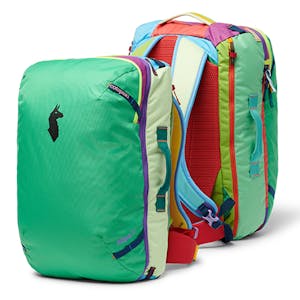A wrap of the biggest stories and best writing about the outdoors from New Zealand and around the world.
A popular lodge on Sweden’s highest peak has been forced to close after a stomach bug rapidly spread among hikers.
STF Kebnekaise mountain station, at the foot of the 2096m Kebnekaise massif, had quarantined several guests who had caught the bug in recent days but decided to take a more drastic measure after it was also detected in hikers camping in the area.
The precise nature of the illness is yet to be determined.
“We don’t know how it started but somehow someone in the mountain station got a stomach disease and it spread,” Maria Persson, operational manager at STF Kebnekaise mountain station, told the Guardian. “We didn’t have that many cases at the mountain station but we heard about a lot more cases among people camping in the area so we decided to close down for a few days to prevent further spread.”
Hikers who were camping were being evacuated from the mountain. Read the full story at the Guardian.
Nine rescued from avalanche as ‘catastrophe’ avoided
Nine people were rescued from The Remarkables following a backcountry avalanche on the mountain range on Saturday.
Helicopters Otago owner Graeme Gale said a quick response from helicopters, ski patrol and avalanche search dog teams — combined with good weather conditions — helped to avoid what could have been “a major catastrophe. Luckily [everyone] got out — and only one had minor injuries.”
Initially, three people were reported missing, but during the rescue operation this increased to nine, Gale said. The starting point of the avalanche was at the crown wall of The Remarkables mountain range.
Late last week, MSC chief executive officer Mike Daisley said many of the South Island’s mountains bore the brunt of the recent weather system which brought significant snowfall. As a result, the avalanche danger would increase dramatically across the Southern Lakes region. Read the full story at the Otago Daily Times.
Big mountain bike plans for Coronet
NZski has plans to super-charge Coronet Peak’s mountain biking operation with an extensive network of new trails, including one it hopes will attract the World Cup to Queenstown.
The operators applied to the Department of Conservation for a 30-year licence to construct, operate and repair 14 mountain bike trails, including two that link to existing trails within the Coronet Peak Recreation Reserve.
NZSki boss Paul Anderson tells Mountain Scene the planned expansion will make better use of skiing infrastructure ‘‘all year around … doing our bit to keep on growing that mountain biking scene and make Queenstown a world-class destination for that. We want to make it more of a family destination rather than just the downhillers coming up to Coronet Peak.”
Public submissions on NZSki’s proposal close on Friday, August 25. Read the full story from Mountain Scene.
Suspected fatal grizzly attack forces closure of popular Montana trail
Sections of the heavily trafficked Buttermilk Trail near the town of West Yellowstone, Montana, remain closed as wildlife officials continue capture efforts for a grizzly bear believed to be responsible for a woman’s death.
According to a press release issued by Montana Fish, Wildlife & Parks (MFWP), game wardens became aware of the woman’s body early Saturday morning. “They also found tracks from an adult grizzly bear and at least one cub near the site. They did not see any bears or signs of a day bed or animal carcass during the investigation,” a MFWP representative said in the press release.
“The hiker was believed to be alone during the encounter, and no bear spray or firearms were found at the scene,” the release continued.
The closure will remain active through August 25. Read the full story from Gear Junkie.
I’m an environmental scientist and avid traveller. Here’s how I explore the world responsibly
Stuff’s Tsewang Nuru Sherpa writes about five ways to explore the world responsibly. The tips include slowing down and travelling more by foot or bike, incorporating sustainable habits into your daily routine, and staying longer at your destination.
‘A silver lining of the pandemic is that it has revealed that we are more of a connected-global community than we realised, and it’s high time we travel mindfully with a community mindset.
‘And it all starts with us – it’s not just about capping our carbon emissions; it’s about upping our positive social and economic impact in destinations that are wholly tourism-reliant. It’s about giving back and being a guest rather than just a passing traveller.’
Read the full story from Stuff.







